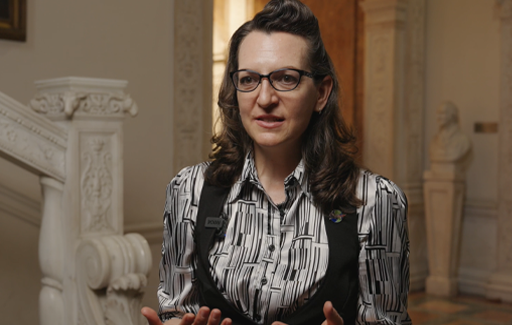1 Why are we protecting the planets?
In this section we will introduce you to some of the scientific debates that mean planetary protection is a key consideration within the space sector today, especially for missions to other planetary bodies.
Activity 1
The Open University’s AstrobiologyOU [Tip: hold Ctrl and click a link to open it in a new tab. (Hide tip)] research group (who have authored this course) organised an international event in London in 2024 – the International COSPAR Planetary Protection Week (ICPPW) – which brought together researchers, policy makers, and representatives from national space agencies and industry representatives. At the event we asked the participants ‘why is planetary protection important?’
Watch Video 1 that collates some of their views. As you watch the video, note down some of the reasons that they suggest.

Transcript: Video 1 Experts’ responses to the question ‘why is planetary protection important?’
Note that COSPAR is the Committee on Space Research, and you will learn more about them later.
Answer
Each of the experts came to the meeting with a different perspective on planetary protection, so there were several ideas you might have noted down. You might have mentioned that planetary protection helps our ability to undertake safe and sustainable exploration of the Solar System, allowing us to protect environments that might harbour life or environments that are pristine and free from contamination. You might also have noted that planetary protection enables us to ensure that any life we might find is not from Earth but is native to the body we might be visiting. This means that our scientific investigations of other parts of the Solar System are rigorous and reliable. We could also put our own biosphere in danger if we don’t protect our environment here on Earth from life from space.
Although this course focuses on planetary protection, there are many other reasons why we should try to protect the wider space environment. There is an interest, for example, in exploiting resources available elsewhere in the Solar System, but who owns these resources? Is it morally appropriate to disrupt or destroy pristine space environments? Who is responsible for stewardship of the space environment when space endeavours change from being the domain of nation states and into commercial ventures? Shouldn’t we ensure we do not limit the opportunities of future generations to explore and enjoy our Solar System?
If you’re interested in learning more about some of these wider issues, you may choose to watch our videos:
For now, let’s explore some of the scientific reasons for planetary protection, starting with the search for life beyond Earth.
